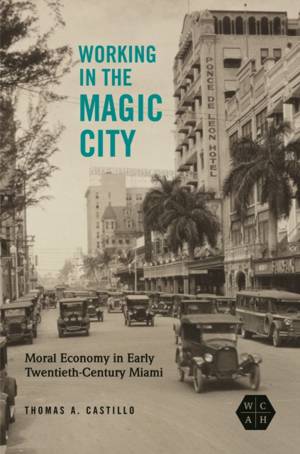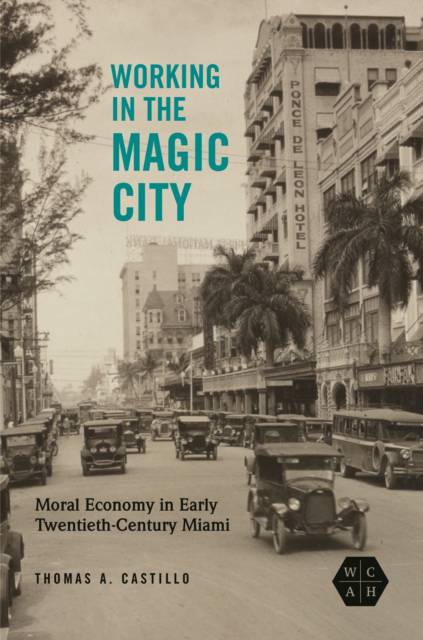
Door een staking bij bpost kan je online bestelling op dit moment iets langer onderweg zijn dan voorzien. Dringend iets nodig? Onze winkels ontvangen jou met open armen!
- Afhalen na 1 uur in een winkel met voorraad
- Gratis thuislevering in België vanaf € 30
- Ruim aanbod met 7 miljoen producten
Door een staking bij bpost kan je online bestelling op dit moment iets langer onderweg zijn dan voorzien. Dringend iets nodig? Onze winkels ontvangen jou met open armen!
- Afhalen na 1 uur in een winkel met voorraad
- Gratis thuislevering in België vanaf € 30
- Ruim aanbod met 7 miljoen producten
Zoeken
€ 38,45
+ 76 punten
Omschrijving
In the early twentieth century, Miami cultivated an image of itself as a destination for leisure and sunshine free from labor strife. Thomas A. Castillo unpacks this idea of class harmony and the language that articulated its presence by delving into the conflicts, repression, and progressive grassroots politics of the time. Castillo pays particular attention to how class and race relations reflected and reinforced the nature of power in Miami. Class harmony argued against the existence of labor conflict, but in reality obscured how workers struggled within the city's service-oriented seasonal economy. Castillo shows how and why such an ideal thrived in Miami's atmosphere of growth and boosterism and amidst the political economy of tourism. His analysis also presents class harmony as a theoretical framework that broadens our definitions of class conflict and class consciousness.
Specificaties
Betrokkenen
- Auteur(s):
- Uitgeverij:
Inhoud
- Aantal bladzijden:
- 296
- Taal:
- Engels
- Reeks:
Eigenschappen
- Productcode (EAN):
- 9780252086533
- Verschijningsdatum:
- 28/06/2022
- Uitvoering:
- Paperback
- Formaat:
- Trade paperback (VS)
- Afmetingen:
- 152 mm x 234 mm
- Gewicht:
- 430 g

Alleen bij Standaard Boekhandel
+ 76 punten op je klantenkaart van Standaard Boekhandel
Beoordelingen
We publiceren alleen reviews die voldoen aan de voorwaarden voor reviews. Bekijk onze voorwaarden voor reviews.











